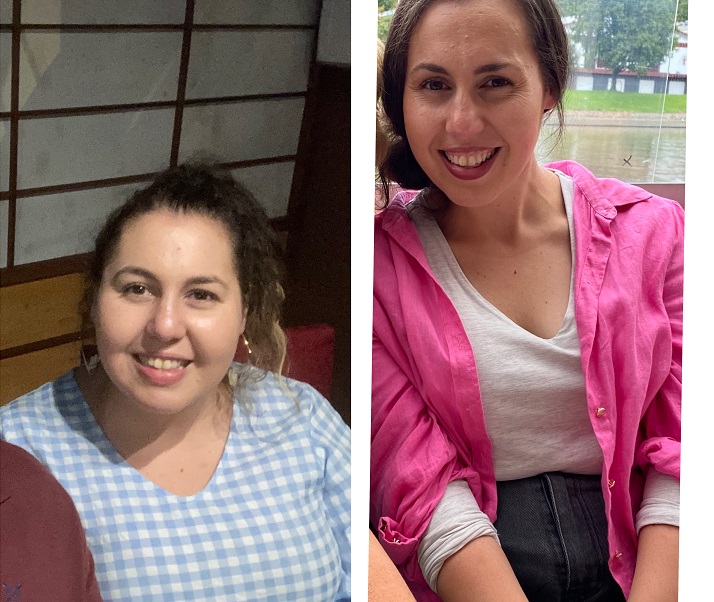“Surgery isn’t the end of your life. For me, it was the beginning.” – Merrilee’s Story

My brother had ulcerative colitis, so IBD is in our family. But I was perfectly healthy prior to my diagnosis. I was in Italy and when I came home, I felt a bit unwell. I went to the doctor who basically said that I had the runs. He suggested I had a travel bug and put me on antibiotics. There continued to be blood in my stool, so I went back to him, and he continued to tell me it was just a bug. I wasn’t in any pain, and my blood tests weren’t showing inflammation. Then I told him, because he didn’t know, that my brother had UC. He still said, “I don’t think it’s that, I think you have a bug.” About three weeks after, I went back to the doctor. I’d lost about seven kilos. Another set of blood tests didn’t show anything, and when my mom spoke to him and said that I was still so sick, he told us to go to the hospital. I went to hospital, had a colonoscopy, and I was immediately diagnosed with UC. My whole bowel was inflamed. Despite the challenges I faced, I know compared to a lot of other people that I was diagnosed quite quickly. I’m 32 now – that was about 14 years ago.
Following my diagnosis, I saw a specialist for about five years, and I was trialing a lot of different medications. Steroids were working to some extent, but when I was 23 or 24, I had an infection and the prolonged use of steroids made me septic. I got rushed to hospital and was assigned a new specialist, my saving grace. She figured out that the reason I wasn’t going into remission is because of what’s called shunting. I was shunting one of my immune suppressants – which meant that it wasn’t going to the place that it needed to go, to work. She kept me on that drug, as well as another drug that is usually for gout – not that I have gout, but that’s what it’s for – and I was in remission for about two years.
Then Covid-19 hit. At the time, the specialist thought I was doing so well that she took me off my immunosuppressants. At that time, they didn’t know what COVID was, and there were no vaccines at that point. She thought I’d be fine, but within three weeks, I was sick. In 2021, I was in and out of hospital. We couldn’t get it under control. I started biologic medication. It would work for a month or two at a time. In December 2021, we had one more option, but I said that I didn’t want it. I just wanted to have surgery. On Christmas Eve, I got my whole bowel removed. It was the best decision, as I’m not sick anymore.
It took time for me to get used to an ostomy bag, and to see how I tolerated certain foods. But now I’m not on steroids; I can exercise again. I’ve lost the weight that I gained from steroids. I can go out without having to think about finding a toilet. My brother also has an ostomy bag. He developed bowel cancer, so it was a non-negotiable for him. But his experience showed me that having one isn’t the end of the world.
The stoma surgery didn’t affect my personal relationships, and it hasn’t affected my work as full-time teacher. Interestingly, though, something I’ve suffered since my surgery is what’s called health anxiety. I’ve been sick for so long. Now that I’m not, I’m almost bracing for the next thing. It’s a form of PTSD. I was also never offered any holistic or multidisciplinary support. At one point, a dietitian was offered, but never followed through by the hospital. I’m a part of a stoma support group on Facebook, which was recommended to me following my surgery, and it’s been helpful. It helps to reinforce that you’re not on your own. I’ve asked questions and answered questions on there. When you’re new to living with a stoma, you just don’t know what you don’t know.
My biggest takeaway from this experience is to find a specialist that you trust, and one that doesn’t see you as a number, or just another patient. Also, surgery isn’t the end of your life. If anything, for me, it was the beginning.